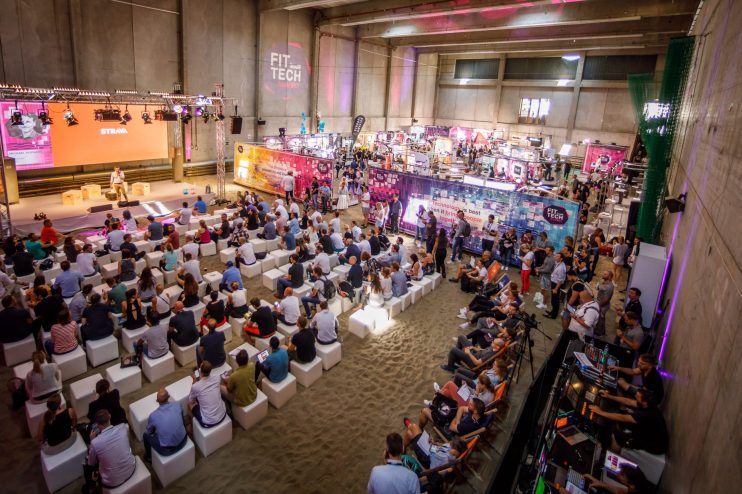
Health and wealth: ‘fit-tech’ steps up the pace

Fitness is far from an obvious winner from government instructions to ‘stay home’.
Gyms are firmly closed. People making the most of the ‘one form of exercise’ allowed by the government are the only people in parks.
In these inauspicious circumstances, though, there is heightened awareness of personal fitness. In the early days of lockdown, families would set the clock by Joe Wicks’ daily YouTube exercise routines. Meanwhile, fixed-location fitness providers such as gym-chains and park-based operators such as Be Military Fit have had to adapt quickly to the new reality, offering ‘group’ fitness coaching by video-conference and digital services via smart-phone apps.
Sport England is running a National Lottery-funded campaign to give people ‘advice and tools’ to stay active during coronavirus outbreak. In the capital, London Sport has been promoting ‘digital support packages’.
From AI to gamification
An unforeseen opportunity, then, for fitness technology to shine, as well as closely related areas such as wearable technology. The expression ‘fit-tech’ is in increasing usage. Specific products and developments range from increasingly sophisticated smart-watches to the deployment of Artificial Intelligence (AI) and gamification.
A report last year by UKActive described fit-tech as ‘growing day by day’, and urged the physical activity sector to be ‘proactive to grasp it to realise its fullest impact’. Technology was already used by 79 per cent of people to ‘support their health and wellbeing’, according to the report.
UKActive led on the launch of the ‘ActiveLab’ start-up accelerator programme four years ago with a goal of ‘unearthing’ the UK’s first health and fitness unicorn and ‘becoming the global launchpad for innovative and scalable physical activity businesses’. It has worked with partners including government-backed Tech Nation on the programme, which saw 32 businesses take part in its first three years.
From San Francisco to Munich
Some of these small businesses have grown more dynamically than others, of course. They all have some way to go to match the heights of San Francisco-headquartered poster-boy Fitbit, which is being acquired by Google’s parent company Alphabet in a deal worth about $2.1bn (£1.6bn).
Also beyond UK shores, the German city of Munich will this autumn host the third FitTech Summit, which describes itself as ‘Europe’s leading business conference devoted to fitness technology and innovation for wellbeing and healthy lifestyles’. Scheduled for 6 October, the gathering will see talks on everything from ‘Connected coaching: from tracking to teaching’ to ‘Gamification, demystified: from Virtual Reality to neurofeedback’ and ‘Gym 2.0: Human-data love story’.
Summit founder Natalia Karbasova says: “During coronavirus we have seen a surge in health awareness, with home fitness on the rise. People are turning to live-streaming sessions, workouts on demand and home- fitness hardware companies to help them keep fit by all means. Due to coronavirus, overall fitness is now becoming associated with specific health outcomes, and the awareness for strengthening your immune system through exercise will stay with us even when the crisis is over.”
Fit-tech is ultimately part of the vast, and quickly growing, digital health market: a field now centre-stage because of coronavirus. Also related, the NHS contact-tracing app will heighten further the significance of smart-phones.
Although competitive sport, gyms and other fitness fora will re-start and re-open as soon as government guidance permits, coronavirus’s legacy will likely be the acceleration of technology in fitness, as in many other fields.